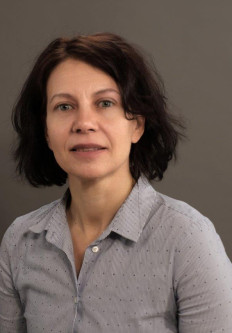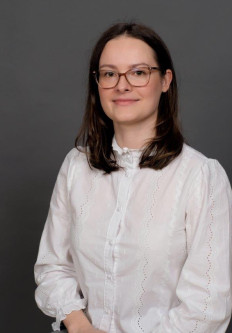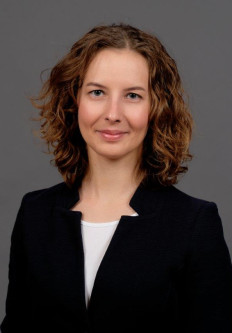

Postgraduate Study Programme in Psychology
Postgraduate Study Programme in Psychology is a two-year Master’s programme leading to the nationally recognized title ‘psychologist’ in Slovenia.
Slovenian National Awarding Committee for EuroPsy (European Certificate in Psychology) has recognized the postgraduate programme in psychology at University of Ljubljana as a programme conforming to the EuroPsy standards for the academic education in psychology.
Duration of the programme: 2 years
Number of ECTS credits: 120
Title: Master of Arts in Psychology
Publication with the information listed below, including the curriculum and short descriptions of courses, can be found here.
The latest versions of the syllabi (Slovene and English version run in parallel) can be found here.
The goal of the master’s programme in psychology is to offer students in-depth knowledge and skills from the area of basic and applied disciplines of the science of psychology and some other related sciences. This kind of knowledge is essential to practise as a psychologist independently and to continue the studies of psychology on the third level (doctoral level, specialisation) as well as for specific in-service training.
The goal of the programme is for students to acquire additional theoretical knowledge, comprehension and skills in areas which have already been covered in the undergraduate programme of psychology; to improve their research skills and qualify for using the psychological diagnostic instruments and providing more demanding psychological treatment. In addition to development of general competences, enabling psychologist practitioners-in-training to render their service to their clients effectively, the principal goal at this level of studies is the development of subject-specific competences relating to the psychological content of the professional practical training.
After completing the studies, Masters of Psychology are qualified to practise as psychologists independently in any professional area. They are able to develop and apply psychological principles, knowledge, models and methods in an ethical and scientific way. Their work is based on the principles of professional ethics and their personal maturity; their work promotes progress, well-being and effectiveness of individuals, groups, organisations and the society.
- General knowledge, ability to analyse, synthesise and predict solutions as well as consequences
- Knowledge and use of style manual and citation methods, mastery of demanding research and applied methods, procedures and processes; ability to plan and carry out research individually as well as individual planning, carrying out and evaluation of the projects and programmes
- Critical and self-critical judgement (critical reading and comprehension of texts, self-awareness of their own points of view, suppositions, partiality, advantages and disadvantages)
- Ability to make practical use of knowledge, find constructive solutions for professional problems on the basis of professional knowledge and skills as well as that of critical and creative thinking
- Skills in searching and using information, information literacy, application of modern information and communication technologies
- General communication ability and skills, ability of professional communication with the clients and members of interdisciplinary professional teams, ability of communication in an international environment, ability of spoken and written presentation of knowledge or findings, skills in performance in front of the audience
- Social skills, cooperativeness, group cooperation, ability to moderate a group, ability to establish and maintain constructive relations with other experts and relevant organizations
- Ability to manage projects
- Willingness to continue further scientific and in-service training as well as management of their own occupational and professional development
- Independence, sense of initiative, autonomy in professional work
- Knowledge, comprehension and consideration of basic principles and the development of differences among individuals, groups and cultures
- Ethical reflection
- Ability to run a practice - that is organisation and marketing of quality psychological services: ability to conduct market research and follow the needs and opportunities for expansion of practice, ability to develop new products and services, their marketing, sales and promotion to current and potential clients, ability to run practice form financial and operative point of view and ability to ensure proper management for employees
- Ability to establish and maintain a system that guarantees work quality
The students of the master’s programme in psychology acquire and upgrade their knowledge and skills, necessary for effective psychological treatment; they also develop personally and professionally to the desired ethical-professional level. The following subject-specific competences are acquired:
- in-depth knowledge and comprehension of psychological theory and practice;
- ability to solve demanding psychological problems by application of scientific methods and procedures as well as critical analysis and synthesis of theoretical knowledge and relevant information;
- coherent mastery of more demanding psychological knowledge, ability to synthesize knowledge from various fields and use it;
- ability to acquire new scientific knowledge and cognitions;
- application of knowledge in various fields of psychology, social and medical sciences;
- in-depth understanding of emotional, mental, physical and social viewpoints of a person’s development as well as application of principles and techniques, supporting this development;
- ability to understand and apply principles, which lead to interchanging between humans and their environment (everyday, working environment, etc.);
- research and understanding of human relations and use of cognitions acquired in various social practices;
- knowledge, understanding and consideration of individual, group and cultural diversity;
- qualification for individual, group or organisation counselling in various educational and occupational fields;
- ability to conduct and carry out various programmes of psychological aid for children, adolescents and adults as well as people with mental health problems;
- ability to place new information and interpretations into a psychological context;
- application of information and communication technology and systems in the field of psychology;
- knowledge and understanding of ethical and professional principles, standards, guidelines, rule books and acts as well as consistent treatment in accordance with psychological and general ethical principles.
The competences acquired are expressed through the ability to carry out effective psychological treatment. Through the programme, students develop:
- ability to interact with the clients appropriately, analyse their needs and define the aim of psychological treatment;
- ability to carry out psychological treatment (ability to assess relevant characteristics of individuals, groups, organizations and/or situations by using appropriate methods of psychological assessment, ability to develop services or products that can be used by clients or others);
- ability to intervene appropriately;
- ability to assess the appropriateness of the intervention;
- ability to present the results of psychological treatment in a way that is appropriate for fulfilment of client’s needs and expectations.
Masters of psychology can work as psychologists carrying out independent psychological practice and/or as psychologists carrying out scientific research work. They can work in schools (in school counselling service, as psychology teachers in secondary schools), health care (after further specialisation, working as clinical psychologists), social welfare, care facilities (nursery schools, old people’s homes), the army and police, civil protection, penal institutions and administration of justice (as court experts), companies and other organisations (in personnel service, marketing service, public relations and in departments for development in companies), in agencies for market research, in sports organizations, in institutions for research, in humanitarian organizations, in public administration (e.g. in the area of road safety, in negotiating teams), in state administration (in ministries and their offices, e.g. Education Development Office, Office for Drugs, Office for Youth) and government offices (e.g. Ombudsman), in non-governmental organizations, in institutions and services of the European Union, in journalism etc., as well as beyond this, in the area of activity organisation and general psychological counselling: organization of work, organization and management of development projects, career counselling service, conducting interviews, in publishing and media (e.g. as editors, counsellors at shows e.g. for children). They can carry out motivational trainings, work in after school programmes and the school care, run youth workshops, work on the help line, with refugees…
According to the information of the Employment Service of the Republic of Slovenia, the psychology graduates find employment in various areas, especially in the public administration, education, health care, and social care.
The anticipated number of students admitted is 80 full-time studies and 60 part-time studies (note: part-time studies are not available each year, only at times).
Academic programme on the second level (Master’s Programme) is available for:
1) candidates who have completed undergraduate programme in the field of psychology.
2) candidates who have completed undergraduate programme of the related expert area and have completed academic requirements, totalling up to 60 ECTS points, which are essential for continuing the studies. Related expert areas are the following: social work; pedagogy and andragogy; social pedagogy; special and rehabilitation pedagogy; visually impaired education and the pedagogy of specific learning difficulties. Additional academic requirements can be completed during studies at the undergraduate level, within the credential study programmes, or by taking examinations prior to the enrolment in the Master’s programme. Candidates who have completed a related study programme must complete all academic requirements in the following courses of the accredited undergraduate study programme of Psychology (Faculty of Arts, University of Ljubljana): Correlation Methods (5 ECTS points), Test Theory (7 ECTS points), Motivation and Emotions (6 ECTS points), Cognitive Psychology (10 ECTS points), Introduction to Clinical Psychology (4 ECTS points), Psychology of Work (8 ECTS points). Moreover, applicants who have completed individual undergraduate study programme must also complete all of the following academic requirements:
- candidates who have completed the university-level undergraduate study programme of Social Work: Developmental Psychology of Childhood (6 ECTS points), Psychology of Adolescence and Adulthood (5 ECTS points), Psychology of Teaching and Learning (7 ECTS points);
- candidates who have completed the university-level undergraduate study programme of Pedagogy and Andragogy: Social Influence (5 ECTS points), Social Reality (6 ECTS points), Standpoints, Social Cognitions and Representations (6 ECTS points), Introduction to Counselling and Psychotherapy (3 ECTS points);
- candidates who have completed the university-level undergraduate study programme of Social Pedagogy: Psychology of Personality (7 ECTS points), Social Influence (5 ECTS points), Standpoints, Social Cognitions and Representations (6 ECTS points);
- candidates who have completed the university-level undergraduate study programme of Special and Rehabilitation Pedagogy or undergraduate study programme of Visually Impaired Education and the Pedagogy of Specific Learning Difficulties: Psychology of Personality (7 ECTS points), Social Influence (5 ECTS points), Interaction, Group, Application (5 ECTS points), Introduction to Counselling and Psychotherapy (3 ECTS points);
3) candidates who have completed undergraduate studies in psychology abroad. Equivalence of the education abroad is ascertained through the process of recognition of the education abroad for the further studies.
Students who have completed another undergraduate study programme are allowed to stand as candidates for enrolment on the Master’s programme in Psychology if their previous programme covered at least 50 ECTS points from the courses related to the those of the undergraduate study programme of Psychology (Faculty of Arts, University of Ljubljana) and if they completed academic requirements (10 to 60 ECTS points), which are essential for further studies, before the enrolment. On the basis of the undergraduate study programme which the candidates have completed and other certificates of the competences acquired, and based on the opinion of the Council of the Department of Psychology, the Senate of the Faculty of Arts at the University of Ljubljana decides whether the completed programme is similar enough to the undergraduate study programme of psychology and whether the enrolment in the Master’s Programme is possible or not. If the enrolment is possible, the Senate determines the candidate’s additional academic requirements from the accredited undergraduate study programme of Psychology (Faculty of Arts, University of Ljubljana), which must be completed before the enrolment in the Master’s Programme.
If the number of applicants exceeds the number of admission places available, the selection of candidates is made on the basis of the applicants’ average grade in the undergraduate programme. For applicants from non-psychological programmes, the average includes also the grades of the placement tests.
Faculty of Arts may recognize candidates’ knowledge, qualifications or abilities which correspond content-wise and difficulty-wise fully or in part to the general or subject-specific competences defined by the 2nd-level study programme in Psychology.
Faculty of Arts recognizes knowledge, qualification or abilities acquired through formal, informal or experiential learning. Recognition includes:
- taking into consideration certificates and other documents (“non-typical certificates”, portfolios, documents on completed courses and other forms of education),
- assessment of the products, services, publications and other copyrighted works of students,
- assessment of the knowledge, acquired by students through self-education or experiential learning,
- taking into consideration relevant work experience.
The recognized knowledge, qualifications and abilities may be allocated credits according to ECTS criteria for credit allocation of study programmes and are recognized as a finished study obligation (e.g. as a part of exams, midterm exams etc. – without participation in lectures, exercises or seminars; recognition programme study units that are based on work practice and experience). With the usual procedure, the Faculty of Arts handles students’ individual applications for accreditation of knowledge, qualifications and abilities, acquired through formal, informal or experiential learning. The application, submitted to the Student Office is forwarded, to decide upon it, to the Department of Psychology which proposes credit allocation to knowledge, qualifications and abilities with ECTS credit points and the manner of its recognition.
The basic criterion for recognition or non-recognition is the comparability of the knowledge and competences acquired with the content and competences in study units of the undergraduate study programme of psychology. The decision on students’ applications is made by the Student Affairs Committee(with reference to the opinion of the Department of Psychology).
Conditions to proceed to the next academic year
To proceed to the second year of the postgraduate study programme, students must complete all of the academic requirements given in the curriculum and individual syllabi for the first year, totalling 60 ECTS points.
Exceptionally, students are allowed to proceed to the next year with up to 6 ECTS points short of the total number of credits required. The shortfall may be granted only on a prior written request with well-founded reasons for it. The requests are handled by the Student Affairs Committee of the Faculty of Arts; the Appellate Body is the Senate of the Faculty of Arts.
Conditions for repeating a year
Students who have not completed all of the academic requirements for enrolment in the next year, defined by the study programme, are given a possibility to repeat a year once during the time of their studies, provided that they satisfy the conditions for repeating a year, defined by the study programme. The conditions for repeating a year of the second-level study programme of psychology are completed academic requirements for the year the students want to repeat, amounting 30 ECTS points (or 50 % of all the credits for this year).
Conditions for completing the programme
To complete the programme, students must fulfil all of the requirements defined by the study programme and syllabi of the courses, totalling 120 ECTS points. This also includes successfully completed practical training, writing master’s thesis and successfully defending it.
The transfer to the study programme in psychology is possible:
a) between universities from the master’s study programmes of psychology or within the University of Ljubljana from the second-level study programmes from different but related specialist area (e.g. social work, pedagogy, andragogy, sociology – e.g. analytical sociology, sociology of culture, social informatics, personnel management – social pedagogy, special and rehabilitation pedagogy, primary teacher education, medicine):
- to transfer to the university-level master’s study programme of Psychology, the candidates must satisfy the admission requirements for enrolment in an advanced year of the second-level study programme where they are enrolled,
- the applicants must satisfy admission requirements for the first year of the university-level master’s study programme of Psychology,
- the Senate of the Faculty of Arts at the University of Ljubljana decides on the possibility for transfer to the proposed academic programme and must decide on candidates’ fulfilment of the conditions for the transfer,
- based on the opinion of the Department of Psychology, the Senate of the Faculty of Arts at the University of Ljubljana determines applicants’ placement tests and other requirements (from the list of basic courses of the university-level master’s study programme of Psychology, totalling up to 60 ECTS points) that need to be fulfilled.
b) from university-level old (pre-Bologna) study programmes of psychology. Based on the opinion of the Department of Psychology, the Senate of the Faculty of Arts at the University of Ljubljana recognizes the candidates’ academic obligations, totalling 60 ECTS points; in the individual programme, the Senate determines to the candidates additional academic obligations (60 ECTS points) which are necessary for the acquisition of the Master’s Degree in Psychology.
Students’ knowledge is examined and assessed by individual courses, therefore the learning process at every course ends with the final examination of knowledge and skills acquired.
The examination system is in accordance with the Statute of the University of Ljubljana and the Rules on taking examinations of the Faculty of Arts at the University of Ljubljana.
The forms of knowledge evaluation are: oral and written examination, midterm examinations, essays or seminar papers and other written tasks, practical tasks or products, project works and reports on completed practical training, master’s thesis and its defending.
Grading scale:
10 – excellent: exceptional results with minor mistakes,
9 - very good: above-average knowledge, however with some mistakes,
8 - very good: good results,
7 – good: good knowledge, however with some major mistakes,
6 – sufficient: knowledge meets the minimum requirements,
5 to 1 – insufficient: knowledge does not meet the minimum requirements.
Practical training is assessed by internal supervisor based on the candidate’s report on carrying out the practical training and the report of the external supervisor. Students’ success in practical training is evaluated on the two-grade scale: passed / failed.
Internal electives
In the third semester, students may choose one out of three specialist modules offered, amounting to 15 ECTS points.
External electives
Students may complete 2 courses (6 ECTS points, i.e. 5 % of the entire programme) offered by other study programmes at the Faculty of Arts or at the other faculties at the University of Ljubljana.
Students are allowed to transfer 30 ECTS points of the programme (a semester of studies, regardless of obligatory courses or electives) from any kind of psychology programmes that are carried out at respected European universities in accordance with the Bologna Declaration.






























